Solar water heating panels are an innovative technology that harnesses the power of the sun to provide hot water for residential and commercial use. This renewable energy solution offers a more sustainable and eco-friendly alternative to traditional electric or gas-powered water heaters. In this article, we will explore the working principles of solar water heating panels, their benefits, and their potential for widespread adoption in the future. 1. How Solar Water Heating Panels Work: Solar water heating systems consist of solar collectors, a heat transfer fluid, a storage tank, and a circulating pump. These components work together to capture solar energy, transfer it to water, and store it for later use. The three main types of solar water heating panels are: a. Flat Plate Collectors: These are the most common type of solar collectors. They consist of an absorber plate with a black coating to absorb sunlight, a transparent cover to trap the heat, and a network of pipes to circulate the heat transfer fluid. As sunlight strikes the absorber plate, it heats up the fluid, which is then pumped into a storage tank. b. Evacuated Tube Collectors: These collectors utilize a series of glass tubes, each containing an absorber plate. The tubes are evacuated to create a vacuum, which acts as an excellent insulator to prevent heat loss. The absorber plates absorb sunlight and transfer the heat to the surrounding fluid.
Solar water
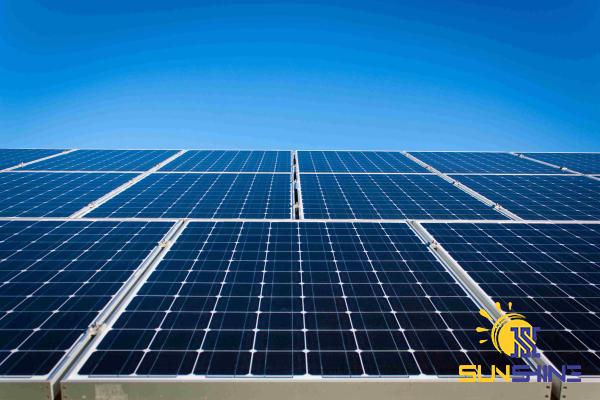 This heat is then transferred to the storage tank for later use. c. Integral Collector-Storage Systems: Also known as batch or breadbox collectors, these systems combine the solar collector and storage tank into a single unit. The collector absorbs sunlight, heats the water directly, and stores it for immediate use. These systems are simpler and less expensive but may be less efficient in colder climates. 2. Benefits of Solar Water Heating Panels: a. Renewable Energy Source: Solar water heating panels utilize the abundant and renewable energy from the sun, reducing dependence on fossil fuels and minimizing greenhouse gas emissions. b. Energy Savings: By harnessing solar power, households and businesses can significantly reduce their energy consumption and subsequently lower utility bills. c. Reduced Environmental Impact: Solar water heating panels have a minimal environmental impact compared to conventional water heating methods. They contribute to a cleaner and greener environment by reducing carbon emissions, air pollution, and depletion of natural resources. d. Long-term Cost Savings: Although the initial investment for installing solar water heating panels may be higher than traditional water heaters, the long-term cost savings outweigh the upfront expenses. These systems typically have a lifespan of 20-30 years, resulting in substantial savings over time.
This heat is then transferred to the storage tank for later use. c. Integral Collector-Storage Systems: Also known as batch or breadbox collectors, these systems combine the solar collector and storage tank into a single unit. The collector absorbs sunlight, heats the water directly, and stores it for immediate use. These systems are simpler and less expensive but may be less efficient in colder climates. 2. Benefits of Solar Water Heating Panels: a. Renewable Energy Source: Solar water heating panels utilize the abundant and renewable energy from the sun, reducing dependence on fossil fuels and minimizing greenhouse gas emissions. b. Energy Savings: By harnessing solar power, households and businesses can significantly reduce their energy consumption and subsequently lower utility bills. c. Reduced Environmental Impact: Solar water heating panels have a minimal environmental impact compared to conventional water heating methods. They contribute to a cleaner and greener environment by reducing carbon emissions, air pollution, and depletion of natural resources. d. Long-term Cost Savings: Although the initial investment for installing solar water heating panels may be higher than traditional water heaters, the long-term cost savings outweigh the upfront expenses. These systems typically have a lifespan of 20-30 years, resulting in substantial savings over time.
Specifications of solar water
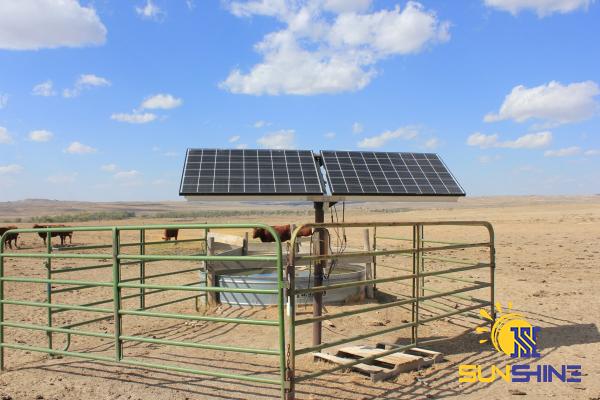 e. Independence from Grid: Solar water heating panels provide an opportunity for off-grid living or in areas with frequent power outages. It ensures a constant supply of hot water, even during disruptions in the electrical grid. 3. Factors Affecting Solar Water Heater Performance: Several factors affect the performance and efficiency of solar water heating panels, including: a. Sunlight Availability: The amount and intensity of sunlight available in a specific location impact the effectiveness of solar water heating panels. Regions with consistent sun exposure will benefit from higher efficiency. b. Climate and Temperature: Solar water heating panels can still operate in colder climates; however, their efficiency may vary. Antifreeze solutions or drain-back systems can be installed to prevent freezing in sub-zero temperatures. c. Orientation and Tilt: Proper installation and positioning of solar collectors are crucial for optimum efficiency. Ideally, panels should face south or within 30 degrees of due south in the Northern Hemisphere and north in the Southern Hemisphere. d. Roof Space: Sufficient and unobstructed roof space is necessary for the installation of solar water heating panels. Factors such as shading, nearby structures, and roof orientation need to be considered.
e. Independence from Grid: Solar water heating panels provide an opportunity for off-grid living or in areas with frequent power outages. It ensures a constant supply of hot water, even during disruptions in the electrical grid. 3. Factors Affecting Solar Water Heater Performance: Several factors affect the performance and efficiency of solar water heating panels, including: a. Sunlight Availability: The amount and intensity of sunlight available in a specific location impact the effectiveness of solar water heating panels. Regions with consistent sun exposure will benefit from higher efficiency. b. Climate and Temperature: Solar water heating panels can still operate in colder climates; however, their efficiency may vary. Antifreeze solutions or drain-back systems can be installed to prevent freezing in sub-zero temperatures. c. Orientation and Tilt: Proper installation and positioning of solar collectors are crucial for optimum efficiency. Ideally, panels should face south or within 30 degrees of due south in the Northern Hemisphere and north in the Southern Hemisphere. d. Roof Space: Sufficient and unobstructed roof space is necessary for the installation of solar water heating panels. Factors such as shading, nearby structures, and roof orientation need to be considered.
buy Solar water
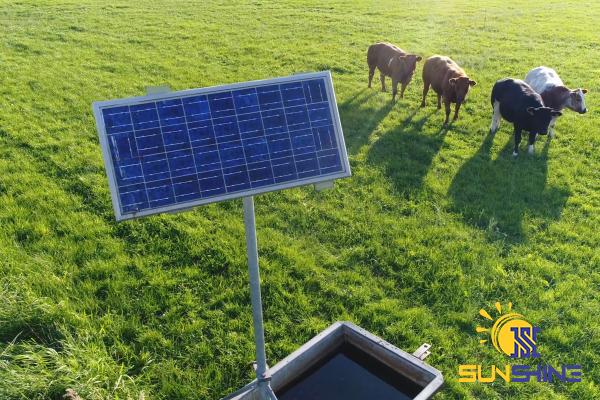 4. Challenges and Limitations: Despite its many advantages, the widespread adoption of solar water heating panels still faces certain challenges and limitations, including: a. Initial Cost: The upfront cost of solar water heating panel systems can be a deterrent for some homeowners and businesses. However, government incentives, tax credits, and long-term energy savings can help offset the initial investment. b. Efficiency Variations: Solar water heating systems may experience decreased efficiency during periods of limited sunlight or in colder climates. Backup systems or supplemental heating methods may be necessary during such conditions. c. Space Requirements: Solar water heating panels require adequate roof space for installation, which may not always be possible in densely populated areas or buildings with multiple occupants. d. Maintenance: Regular maintenance and inspection are required to ensure optimal performance. This includes cleaning the panels, checking fluid levels, and inspecting components for any signs of damage or wear. Conclusion: Solar water heating panels offer a sustainable and cost-effective solution for meeting hot water needs in residential and commercial settings. By harnessing the abundant energy from the sun, these systems reduce dependence on fossil fuels, lower energy costs, and contribute to a greener environment. While the initial cost and varying efficiency may pose some challenges, the long-term benefits and potential for growth and innovation in this field make solar water heating panels an attractive and promising technology for the future.
4. Challenges and Limitations: Despite its many advantages, the widespread adoption of solar water heating panels still faces certain challenges and limitations, including: a. Initial Cost: The upfront cost of solar water heating panel systems can be a deterrent for some homeowners and businesses. However, government incentives, tax credits, and long-term energy savings can help offset the initial investment. b. Efficiency Variations: Solar water heating systems may experience decreased efficiency during periods of limited sunlight or in colder climates. Backup systems or supplemental heating methods may be necessary during such conditions. c. Space Requirements: Solar water heating panels require adequate roof space for installation, which may not always be possible in densely populated areas or buildings with multiple occupants. d. Maintenance: Regular maintenance and inspection are required to ensure optimal performance. This includes cleaning the panels, checking fluid levels, and inspecting components for any signs of damage or wear. Conclusion: Solar water heating panels offer a sustainable and cost-effective solution for meeting hot water needs in residential and commercial settings. By harnessing the abundant energy from the sun, these systems reduce dependence on fossil fuels, lower energy costs, and contribute to a greener environment. While the initial cost and varying efficiency may pose some challenges, the long-term benefits and potential for growth and innovation in this field make solar water heating panels an attractive and promising technology for the future.
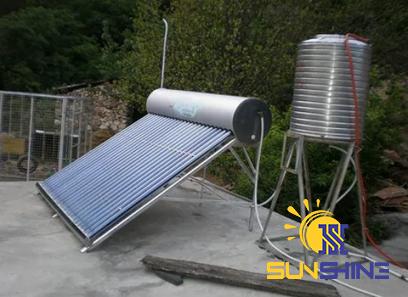
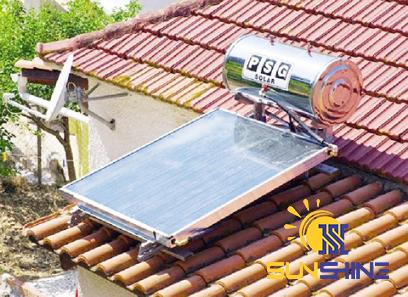
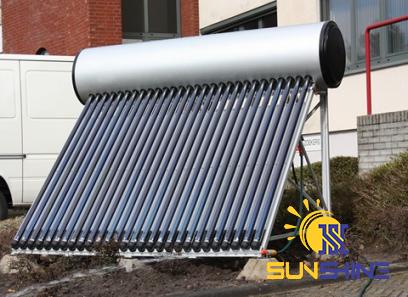
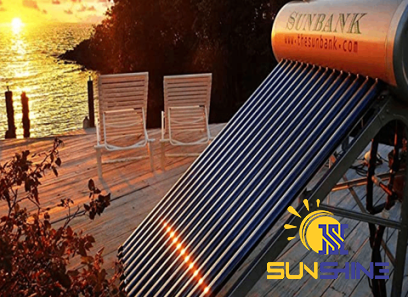
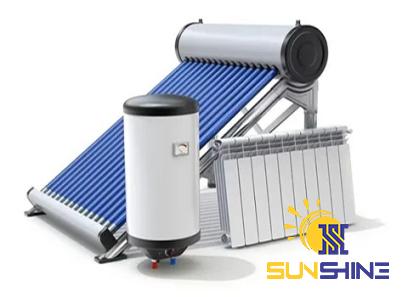
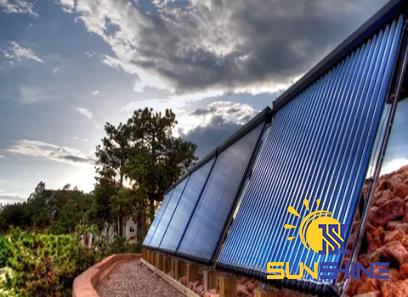
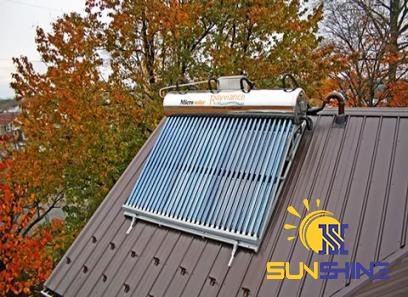
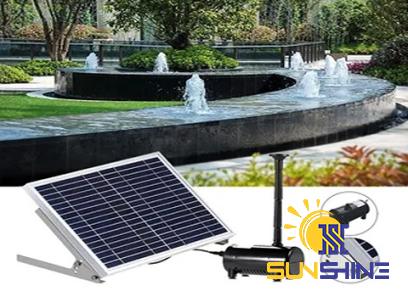
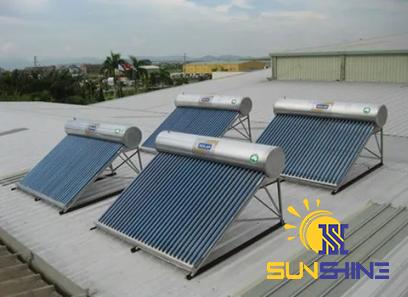
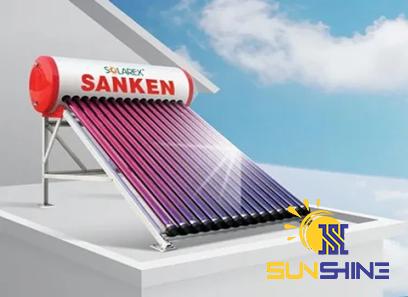
Your comment submitted.